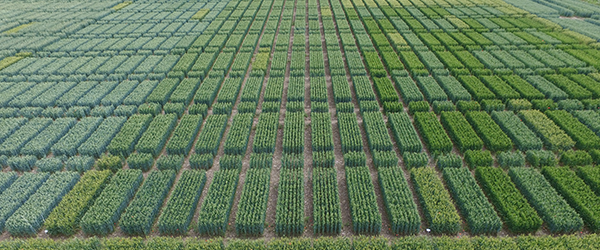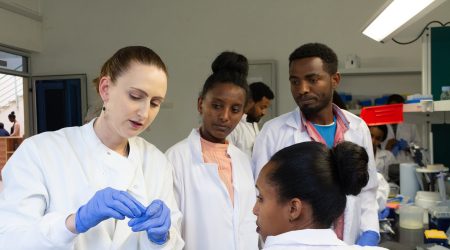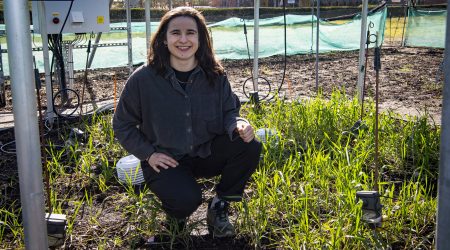Scientists create new training resource to break down barriers to wheat research

Scientists from Dr Cristobal Uauy’s laboratory have developed a new open access online wheat training hub to support researchers currently working on wheat or hoping to make the transition to work on this important crop.
The training hub provides essential, step by step information on experimental protocols, wheat cultivation, and up to date guides to a wide range of genomics tools, all of which can provide a solid foundation from which to carry out wheat research.
Dr Philippa Borrill, who led the project, said, “We hope that this website will provide a collaborative platform to share information about wheat for both established wheat researchers and those new to the field”.
Wheat is one of the most widely cultivated crops in the UK and worldwide, with 740 million tonnes projected to be produced in 2016. While global wheat yields are increasing, it is estimated that global cereal production must double by 2050 to feed the world’s growing population.
Wheat is generally considered as a difficult plant to work with due to its relatively long generation time and lack of genomic resources. These barriers often discourage scientists from working on wheat compared with more established model plant species such as Arabidopsis.
In the last few years, wheat laboratories around the UK and the world have significantly lowered these barriers. However, access to this information is usually scattered across multiple sites making it difficult to find.
In addition basic skills training, such as how to grow and cross wheat and essential knowledge on wheat terminology, is not readily found. This makes it difficult for those working in non-wheat groups to make the transition to wheat research, or for wheat groups to discover and adopt new skills, techniques and genomic tools.
The new Wheat Training website comprises three main areas: the first provides a detailed introduction to wheat research, including wheat anatomy, development, terminology, cultivation and crossing.
The genomics resources area outlines a range of genomics tools available in wheat research including genome assemblies, gene models and expression browsers, with detailed instructions on how to use each plus additional commentary on their benefits and pitfalls.
The third area of the website provides strategies on how to use new functional genomic resources being developed by the international wheat community.
Dr Cristobal Uauy said, “We look forward to growing this resource based on community feedback and contributions. This will ensure that the resource remains relevant and focused on users”.
The Uauy laboratory is funded by the BBSRC and the International Wheat Yield Partnership.



